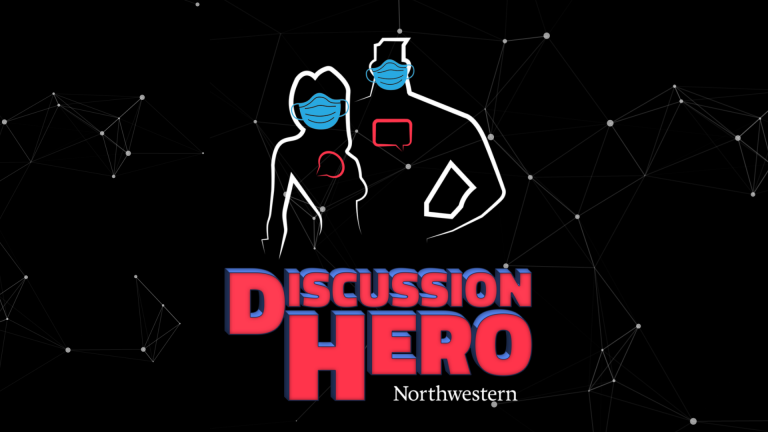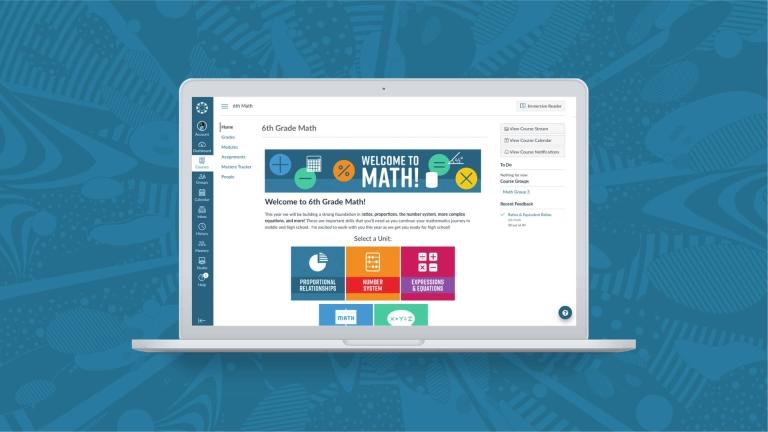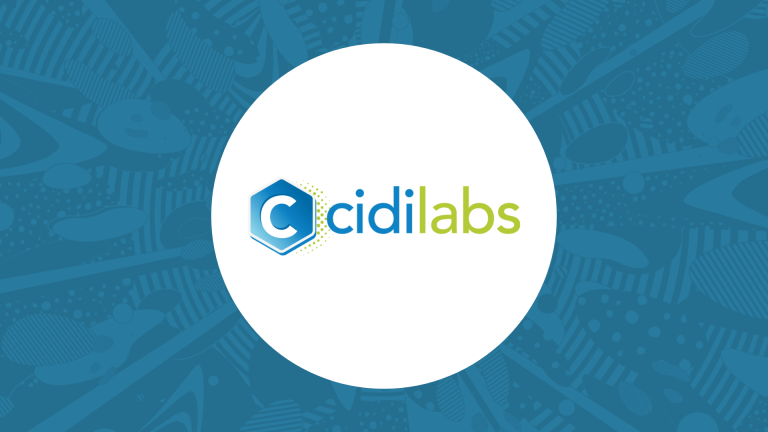
In March 2020, the COVID-19 pandemic began to permanently transform the face of American education and global learning. As schools across the country scrambled to bring their classes online, Northwestern University School of Professional Studies was already committed to remote learning and was pioneering a new gamified discussion board called Discussion Hero. The Instructure team wrote an article about this new and innovative tool at the time. Our team at Northwestern thought it was time to provide an update on this Canvas LTI as it has continued to evolve and is now available as open-source code.
The Discussion Hero Welcome Screen
What is Discussion Hero?
Discussion Hero is a gamified discussion board designed to make discussions more versatile and engaging. It encourages diverse points of view, questioning, challenging, and respectful debate. It combines the traditional awarding of points with a gamified progress meter that allows students to see visually how they are performing on their discussion posts.
There are two distinct roles in Discussion Hero: Heroes and Villains. Student participants choose which role they want on a first-come, first-serve basis. Once they make the selection, they can then pick a unique avatar with unique superpowers. As students add posts to the discussion, they improve their standings on the progress meter depending on a scoring rubric that the instructor can customize. As they move up the progress meter, they are awarded more prestigious rankings. For example, students who choose a Hero avatar start out as a bystander, then move to a sidekick, and finally, a superhero. Villains start out as bystanders, then level up to a minion, followed by supervillains.
Instructors may also choose to keep students anonymous.
As they post to the discussion prompt, the discussion can be viewed as a Network Graph or in a traditional discussion format. students must think critically about the subject matter, cite literature, and may use graphics and media, as well as embedded websites within their posts to defend their arguments.
The Network Graph with a Discussion in Progress. Red threads have yet to be read.
Design Features and Accessibility
Discussion Hero includes advanced features such as dragging and dropping images and small media files directly into a post. You can also add a clickable link directly to a website by adding the full web address. Discussion Hero has also been designed with accessibility in mind and includes settings to adjust sound, animation, color, contrast, and even toggle between a graphic that displays threads as a connected network of user posts and a standard Canvas discussion style layout.
Accessibility Settings
Progress and Adoption
One of the tool’s designers, adjunct lecturer and senior learning designer David Noffs, has been using the latest version of Discussion Hero in his classes over the past three years. Noffs teaches learning environment design in the Information, Design, and Strategy program and regularly surveys students after each use of the tool. According to Noffs, most students are excited to use the new tool and actually post more often than they would in a normal discussion board. Moreover, he says students are able to break out of their formal personas and be themselves, despite the fact they are role-playing as Heroes and Villains. He thinks it allows students to see both sides of an issue while being in a safe and fun environment.
While it may not be for everyone, Noffs thinks it is the concept of enabling more open-source experimentation in designing online learning elements and gamification that is worth the effort. Many of his students agree. One student in a recent survey noted that “Elements like Discussion Hero create another way to learn class material. I could see it helping some of my previous classes where the conversations became a bit repetitive. The platform seemed to stretch all of us just a bit and engage with each other using different voices.”
Noffs is excited about the growth of Discussion hero and other instructors trying it out, particularly with a new undergraduate online program at the School of Professional Studies. He believes that gamification in more formal educational settings could play a major role in opening up new ways of learning with diverse populations and neurodiverse learners.
How is the DH Team Promoting Discussion Hero?
The Discussion Hero team has developed a short trailer to demonstrate their product and a one-sheet flyer to whet potential users’ appetites.
The comic book Superhero theme is prevalent in the promotional literature as they try to take advantage of the fun aspect that helps sell Discussion Hero as a new alternative to discussion boards that have not changed much since the turn of the century.
Want to Give Discussion hero a try at Your School?
While Discussion Hero was developed as an LTI for Canvas at Northwestern, Senior Developer Jacob Chase Collins has released an open-source version of Discussion Hero. To learn more about how to install and run this application at your own school, visit Northwestern’s Discussion Hero Community Edition page.
For more information on Discussion Hero, contact us at discussionhero@northwestern.edu.
Keep learning,
Jacob Guerra-Martinez, Jacob Chase Collins, David S. Noffs, Reba-Anna Lee, and Daniel Murphy.
Northwestern University
Related Content
 Teaching-With-Tech-10-Benefits.jpg
Teaching-With-Tech-10-Benefits.jpgBlogs
 cidilabs.png
cidilabs.pngBlogs
 canvas_x_tg_logo_lockup_780_x_520.png
canvas_x_tg_logo_lockup_780_x_520.pngBlogs